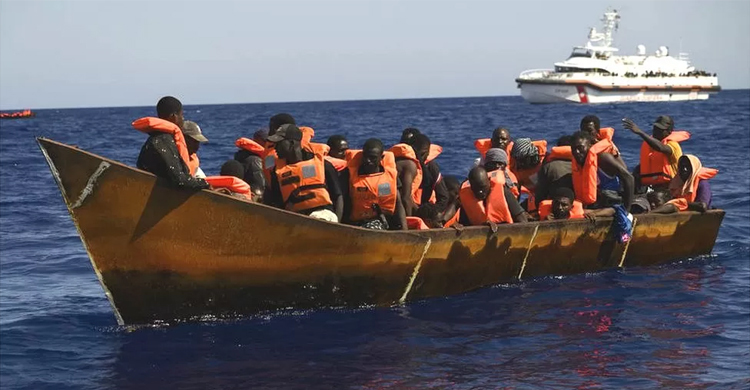41 migrants die in shipwreck off Italy

Forty-one migrants have died in a shipwreck off the Italian island of Lampedusa, survivors told local media.
A group of four people who survived the disaster told rescuers that they were on a boat that had set off from Sfax in Tunisia and sank on its way to Italy.
The four survivors, originally from the Ivory Coast and Guinea, reached Lampedusa on Wednesday.
More than 1,800 people have lost their lives so far this year in the crossing from North Africa to Europe.
The survivors - three men and a woman - told rescuers that they were on a boat carrying 45 people, including three children.
They said the boat, which was about 7m (20ft) long, left Sfax on Thursday last week, but sank within hours after being hit by a big wave. Only 15 people are understood to have been wearing life vests.
They added that they were rescued by a cargo ship and then transferred to an Italian coast guard vessel.
The Italian coast guard reported two shipwrecks in the area on Sunday, but it is not clear whether this vessel is one of those.
Tunisian authorities say Sfax, a port city about 80 miles (130km) from Lampedusa, is a popular gateway for migrants seeking safety and a better life in Europe.
In recent days, Italian patrol boats and charity groups have rescued another 2,000 people who have arrived on Lampedusa.
Tunisia has seen a wave of racism against black Africans in recent months and attempts to leave the country by boat have increased.
The United Nations has registered more than 17,000 deaths and disappearances in the central Mediterranean since 2014, making it the most dangerous migrant crossing in the world.
Last month, the EU signed a $118m (£90m) deal with Tunisia in a bid to curb "irregular" migration.
The money is to be spent on efforts to stop smuggling, strengthen borders and return migrants.
Italy's far-right government has adopted a policy that forces rescue ships to dock at ports further away, rather than letting them disembark rescued migrants in Lampedusa or Sicily.
It says the aim is to spread arrivals across the country, but NGOs say the policy reduces the amount of time they can patrol areas where shipwrecks are more common.
Source: BBC



